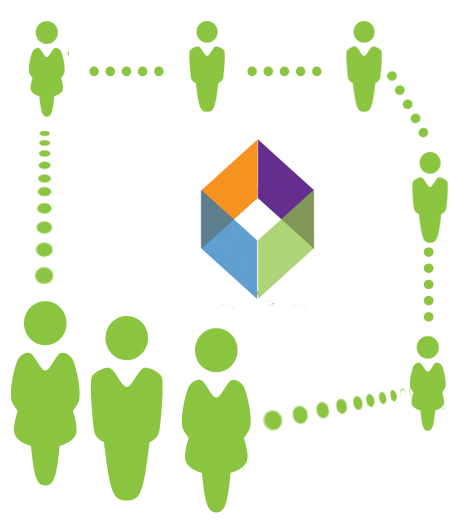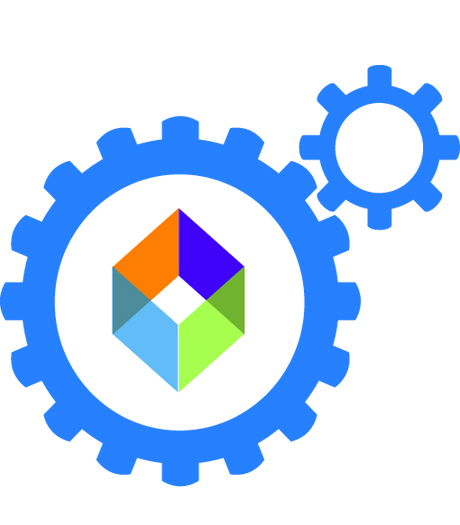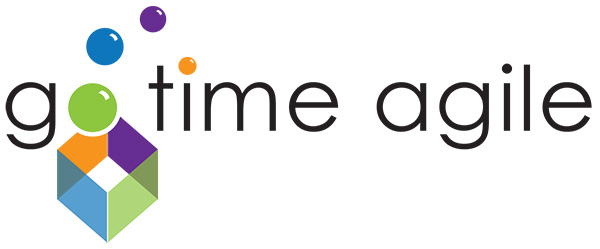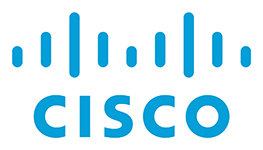
Scalable Adaptive Scrum
You already know that Scrum and Agile have been around for almost 2 decades helping software engineers solve complex problems in demanding situations. What you may not know is that over 400K Scrum Practitioners currently use these tools to sharpen their competitive edge. What you should know is that these same proven, successful methods and principles have now been successfully applied to the vastly more complex environments of marketing, operations, logistics and more. Now the competitive edge belongs to those who practice Scalable Adaptive Scrum.
Go Time Agile has created a unique system to balance the unyielding quality of principled management with responsive scrum tools. The system is called Scalable Adaptive Scrum. It is called “Scalable” because it works for any size group in any capacity as long as that group has a deliverable. It doesn’t require extra overhead since the principles dictate the workload be balanced with the size and ability of the individuals in the group. It is called “Adaptive” because no matter what the deliverable is or who the customer (even if that is the group itself) may be, our tools apply to that deliverable’s unique circumstance.
Go Time Agile delivers these tools and principles through training courses, on–site consulting, and learning materials from which one can train him or herself. See our list below of Scalable Adaptive Scrum learning possibilities and choose your best options.




Agile Principles for Business

Defined Mission and Objections
Before you start your agile journey, you need to select a destination and some intermediary goals to accomplish. You may not know how you’re going to get there, but if you know what you want to become then you are ready to start.
Outcome over Output
You care about results. Are you getting closer accomplishing your objectives and fulfilling your objects?That’s what matters. Don’t worry about how pretty your powerpoint slides are or how many meetings you host. You batting average isn’t as important-the final score is.


Accountability
This principle unlocks the power of all the others. Without it, there can’t be agility or Agile.
Leadership without Micromanagement
An Agile manager is a servant leader. S/he set the priorities and does whatever is necessary to help the team fulfill them. Guide, lift, mentor, teach, lead, and learn. Neither you nor the team can get there without each other. A great leader teaches and fosters leadership within the team. Micromanagement cannot be tolerated because it’s horribly inefficient and the antithesis of agility.


Planning Prior to Acting
It’s critical to prioritize based upon your mission and objectives, choosing what’s most important to do now. Plan, do, report. That iterative approach creates an environment for critical evaluation to make course corrections quickly. What you learn today will go into tomorrow’s planning. Since you can’t do everything you want, you’ve got to implement harsh prioritization to what’s most important.
Focus
We’d rather do less things properly than do many things poorly. Because we prioritize, we’re doing the most important stuff. Multitasking kills productivity. Focus improves creativity and quality. Don’t allow yourself to be distracted by urgent stuff. Keep your eye on on the ball.


Making Choices Based on Validated Learning rather than Opinions or Conventional Wisdom
Mark Twain was correct when he said, “It ain’t what you don’t know that gets you into trouble. It’s what you know for sure that just ain’t so.” If it’s important test it. Don’t get lazy: ask “Why?” No great advancement ever came by looking at things the same way that everyone else did. Breakthroughs come by doing something different. Experiment. Fail fast. Succeed fast.
Collaboration
It sounds simple, but is often ignored. Get more done in less time with better results. Do things that were otherwise impossible.


Transparency and Communication – No Silos
Barriers to communication can come in the form of policy, inconvenience, or attitude. Tear down those walls. Transparency provides speed as individuals and teams learn their own and others’ successes and failures. Teams automatically and openly share they’ve learned, telling the bad news as loudly as the good.
Flexibility
It’s impossible to determine the perfect way to complete a complex project before starting. Attempting to is futile and a waste of time. After you have a good idea of what you want to accomplish, start. Learn as you go. If you are wrong about something change your course and do what you can to learn what you need to know. Don’t waste time being embarrassed. You will be wrong about many things. If you are flexible you can succeed.


Innovation over Optimization
On a consistent cadence, Agile organizations incorporate the principles and practices to seek for innovative solutions that can dramatically improve revenue, save costs, capture market share, or achieve other real-world goals. Innovation is a skill that can be learned.
We are Different Kind of Business Consultantcy
Agile Works for Business
It's Not a Fad
Go Time Agile can do these things for you:

Agile Training
Our basic Agile course covers IT and non-IT implementations. All our courses are interactive with individual and group exercises. We also do training for strategy creation and continual innovation. Certification options are available. You can join a group training workshop or schedule a private session for just your organization.

Strategy Definition
Before you improve your organization’s speed, you need to point them in the right direction. We’ll help you define your mission and objectives. We’ll facilitate the creation of the associated success criteria so you can measure your progress.
Coaching

Scrum Mastering

Dedicated Agile Teams

Cross-Functional Teams

Distributed Teams
Team members distributed across facilities, time zones or continents create several challenges. We’ve learned though experience the technologies and principles that make distributed teams thrive within an Agile environment.
Methodology
Contact us now, and receive a FREE copy of the book, Scrum Marketing

Tools
We’ll help you select right Agile project software for your needs. We can configure and adapt it to meet the needs of the overall organization, individual teams and their members.





